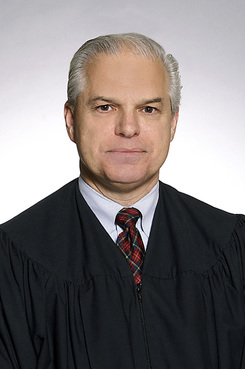Support is growing for an end to forced arbitration of consumer and workers grievances. Last year 10% of Goggle's global workforce walked out, demanding an end to compulsory arbitration sexual harassment claims. Last week Google announced it is ending the policy.
Today Representative Hank Johnson and Senator Richard Blumenthal introduced sweeping legislation to bar such agreements. The measure has already gained the support of a wide array of consumer and progressive organizations. - GWC
Public Citizen Press Room | Public Citizen: Statements of Public Citizen Experts
Public Citizen Applauds Sweeping Legislation That Would End Secretive, Restrictive Forced Arbitration Agreements
Statements of Public Citizen Experts
Note: Today, U.S. Rep. Hank Johnson (D-Ga.) and U.S. Sen. Richard Blumenthal (D-Conn.) introduced the Forced Arbitration Injustice Repeal (FAIR) Act of 2019, which would prohibit the use of forced arbitration in consumer, civil rights, employment, and antitrust disputes. These clauses – which require disputes to be decided by an arbitrator that is often chosen by a corporation, rather than by a judge and jury – are buried in the fine print of paperwork that consumers must sign to open a bank account, buy a cell phone or enter a nursing home. Public Citizen leads a coalition of organizations to end corporations' use of these insidious clauses.
Note: Today, U.S. Rep. Hank Johnson (D-Ga.) and U.S. Sen. Richard Blumenthal (D-Conn.) introduced the Forced Arbitration Injustice Repeal (FAIR) Act of 2019, which would prohibit the use of forced arbitration in consumer, civil rights, employment, and antitrust disputes. These clauses – which require disputes to be decided by an arbitrator that is often chosen by a corporation, rather than by a judge and jury – are buried in the fine print of paperwork that consumers must sign to open a bank account, buy a cell phone or enter a nursing home. Public Citizen leads a coalition of organizations to end corporations' use of these insidious clauses.
"Imagine if the U.S. Supreme Court ruled that corporations could escape lawsuits aiming to enforce consumer protection, worker rights and anti-discrimination laws simply by uttering a secret code. Outrageously, exactly that has happened, except it is not a secret. Corporations of all sorts insert forced arbitration provisions into worker and consumer contracts, and effectively wipe away people's protection against financial rip-offs, wage theft, online swindles, harassment and discrimination and more. The good news is that the public has caught on to this racket and is demanding action. The FAIR Act provides exactly what the public is demanding: an end to the forced arbitration fraud that systematically strips Americans of their legal rights and access to justice."
- Robert Weissman, president
"This legislation is long overdue. Many Americans don't know that they will be forced into arbitration proceedings as an alternative to their right to go to court when they accept job offers, buy a cell phone, take out a loan or enter a retirement home. We can't have one more worker sign away their rights when they start a career, nor can we have one more abused grandmother be robbed of her day in court. This bill gives Americans their rights back."
- Lisa Gilbert, vice president of legislative affairs
"The FAIR Act is an important step in restoring access to justice for those who have been harmed, as it would ensure that systemic claims of wrongdoing are no longer hidden from public view. We will continue to lead a coalition of organizations committed to ending the practice of forced arbitration and urge Congress to quickly act."
- Remington A. Gregg, counsel for civil justice and consumer rights, Public Citizen's Congress Watch division

 Noel Hillman
Noel Hillman